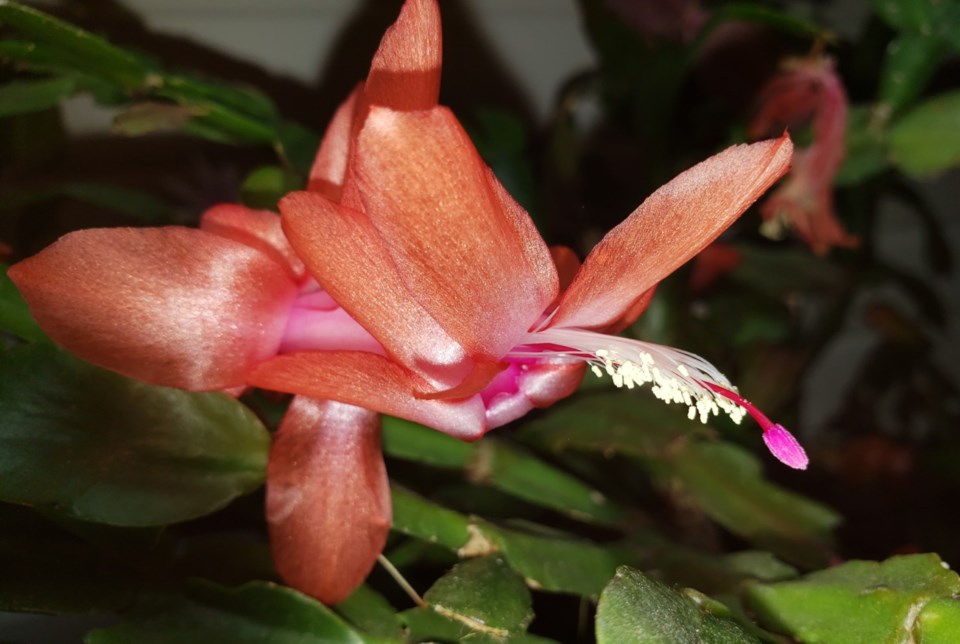These three popular houseplants are similar but there are some differences that are worthy of discussion. They are cherished in many homes as a multigenerational plant and often get to be large. All three are considered “short day” plants so cool temperatures and lengthy periods of darkness will cause them to bloom. They all are native to Brazil and happily hang out in the tropical trees that also grow there. They are not really cacti, but are succulents which are plants that are drought-resistant and have leaves, stems or roots which become fleshier as they are a tissue that can store water.
The true Christmas cactus (Schlumberger gridgesii) will generally bloom in the month of December. The cousin considered the Thanksgiving cactus (Schlumgera truncate) will generally bloom a bit earlier. Both are native to the rain forests of Brazil. The Christmas cactus has teardrop or scalloped edges to the leaves while the Thanksgiving cactus has claw-shaped points on leaf edges. These cacti need cooler temperatures of around 12 to 18 C in order to initiate bloom. The flowers are a tube-shaped double flower with a neon pink stamen. At lower temperatures, the flowering buds will fall off. When not in bloom, these cacti can be exposed to full, direct sunlight.
The Easter cactus (Rhipsalidopsis gaetneri) will bloom in the months of April or May, which is typically closer to Easter. The flowers are starburst shaped with yellow stamens and crimson coloured petals. They need a more humid environment than the Christmas cactus and prefer warmer temperatures of about 24 to 27 C. These cacti are native to the natural forests of Brazil and thrive in partial sunlight.
Both cacti have epiphytic tendencies so will be found growing on rocks or trees. As a houseplant, we tend to grow them terrestrially so it is important to ensure that we are indeed giving these plants the proper conditions for growth. The Easter cactus should be kept evenly moist, but never soggy. If under- watered, the plant segments will collapse towards the pot and begin to turn yellow. If over-watered, the segments will break off of the plant. The Thanksgiving and Christmas cacti need to be kept cooler but the plant will shrivel and die if the soil is not kept evenly moist. Overwatering any of these cacti will result in root rot and dying top growth that often appears to be shriveling.
All of these cacti are considered popular holiday plants. The plant bodies are flattened, so what we call the leaves are actually stems. Flowers are produced from notches in the stems. Fertilization should occur before and after flowering.
If you wish to propagate your cacti so you can share it with your friends and family members, this is not a difficult chore. Take a short cutting from the tip of a stem that consists of at least two or three joined segments. Ensure you take the cutting from healthy foliage to be the most successful. Let the cutting sit to dry for a few hours prior to potting it up. Place the cutting into slightly damp media in a well-lit area but not in direct sunlight. Do not overwater at this stage and succulents root better if the moisture is limited. Within a few weeks, there should be evidence that the cutting is sprouting roots and at this time, can be potted up if you so choose. Do not overwater at any time and increase the light gradually. Once it is well-rooted, then fertilization can also begin.
Happy holidays to all of you and may you have many holiday plants gracing your space.
Hanbidge is the Lead Horticulturist with Orchid Horticulture. Find us at ; by email at [email protected]; on facebook @orchidhort and on instagram at #orchidhort.
Tune into GROW Live on our Facebook page or check out the Youtube channel GROW



